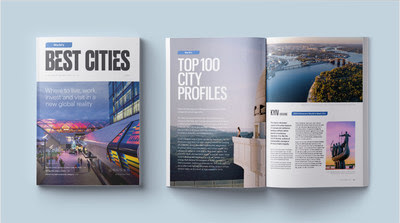At a time when fuel prices rise further, Sudan In The News published an investigation in which whistle-blowers in Sudan’s oil industry reveal that the military intentionally neglected securing oil fields in order to exacerbate the fuel shortages, providing justification for the October 25, 2021, coup.
In its publication entitled ‘How the Sudanese military worsened the fuel crisis to justify their coup’, Sudan In The News explains that it has obtained documents that reveal that over 760 attacks on Sudan’s oil fields during the transitional period have caused oil production to fall by a third. Whistle-blowers in Sudan’s oil industry revealed that the military intentionally neglected securing oil fields in order to exacerbate the fuel shortages, which provided justification for 2021 coup d’état.
International isolation, the suspension of aid, failed policies, financial mismanagement, sanctions, and the ongoing political turbulence have caused the Sudanese Pound to plummet and Sudan’s export market to collapse. Basic goods have become unaffordable to many Sudanese and transport and health care have become increasingly difficult to access.
Sudan In The News explains that much of this crisis was avoidable, and that the deliberate lack of security at oil fields plays a big role. Even this month, an oil pipeline was sabotaged in West Kordofan.
What follows is a summary of their findings, published last month.
Avoidable crisis
As Sudan’s perpetual economic woes continue to inflict widespread suffering on an impoverished population, Sudan In The News has unravelled the full extent of a cover-up that shows how avoidable this crisis could have been, alongside how its continuation proved beneficial for the coup regime.
A major contributor to the economic crisis are continually rising fuel prices that culminate in soaring inflation and cost of living, making conditions increasingly difficult even for Sudan’s middle-class citizens, let alone the 47 per cent of Sudanese citizens who live in poverty.
This investigation indicates that the fuel and economic crises could have been mitigated if the civilian component of the pre-coup transitional government successfully enacted its plans to harness Sudan’s oil production potential and redistribute the profits towards public development and the national economy.
However, the civilians were unable to implement their plans to increase oil production due to the hidden war in Sudan’s oil fields. Sudan In The News gained exclusive access to secret documents circulated within the Sudanese Ministry of Energy and Mining, which fell under the portfolio of civilians before the coup.
‘Civilians [in the government] were unable to implement their plans to increase oil production due to the hidden war in Sudan’s oil fields’
The documents revealed the full extent of the security crisis in Sudan’s oil fields. Despite Bloomberg reporting that Sudan produces 65,000 oil barrels per day (b/pd) as recently as October 27, 2021, the documents that Sudan In The News obtained reveal that Sudanese oil production is 39 per cent less than reported.
In fact, oil production actually fell by 32.6 per cent, from 58,728 b/pd in February 2021 to 39,538 b/pd in March 2022. During that time period, there were at least 772 security incidents that sabotaged or disrupted oil production. This resulted in losses of at least 200,000 oil barrels, with at least $27 million accumulated in repair costs.
The attacks, which continue to occur at the time of writing, are carried out by members of the communities where oil fields are located. The locals hold grievances about the lack of social responsibility projects from oil companies operating in their community. But why were the civilians in the oil sector unable to deliver these projects?
According to a high-ranking whistle-blower in SudaPet, Sudan’s state-owned national oil company, the military component of the transitional government neglected to provide the security needed to deliver both the demanded social responsibility projects and achieve the civilian oil production targets.
The documents revealed how the civilians in the energy ministry called on the military-led Transitional Sovereignty Council and the Ministry of Defence to increase security and activate emergency laws in oil production areas.
However, the whistle-blower alleges that the military deliberately refused to secure oil fields so that the fuel and economic crises would intensify, so as to give the military justification to eventually oust the civilian component of the transitional government.
‘The military deliberately refused to secure oil fields so that the fuel and economic crises would intensify’
The military eventually staged its coup under the guise that the civilians failed to solve the problems confronting Sudan’s impoverished masses, thus enabling them to frame the October 25, 2021, coup as a “correction of the democratic transition”.
Yet, even after the coup, the hidden war in the oil fields rages on. The attacks that the military allegedly turned a blind eye to are escalating beyond their control.
According to the SudaPet whistle-blower, the coup regime is keen to suppress this information as it seeks to avoid the “embarrassment” of their inability to provide security and stability, as well as the freefalling production of one of Sudan’s most important natural resources amid fuel and economic crises which prove a leading factor in continued public anger against military rule.
‘The attacks that the military allegedly turned a blind eye to are escalating beyond their control’
The coup regime’s silence on rapidly declining oil production reflects the wider lack of transparency in Sudan’s oil sector, with the whistle-blower revealing how it intersects with corruption in Sudan’s oil industry.
Domino effect
Fuel shortages in Sudan are feeding a worsening humanitarian crisis that has seen 40 per cent of Sudan’s population project to face food insecurity.
Sudan In The news spoke to staff at two humanitarian organisations in Sudan – the UN World Food Programme and the Norwegian Refugee Council – who explained how the fuel crisis is causing domino effects that trigger: unaffordable food and transport prices, impede the impoverished from earning a living, prevent personal expenditure on health, and hinder attempts by humanitarian organisations to mitigate the crisis.
Kholood Khair, the founding director of Confluence Advisory political think-tank, argues that it exposes the coup regimes’ weaknesses, adds pressure on the generals, and indicates that Sudan’s “growing instability does not create the right environment” for international investment.
Solutions?
Proposed solutions for ending the security crisis in Sudan’s oil fields include satisfying the demands for infrastructure and employment from the marginalised groups attacking the oil fields.
Alternatively, Khair calls for Sudan’s donor community to economically support a new transition and to re-route funding to pro-democracy forces so that it is not siphoned off by the coup regime.
Source: Radio Dabanga


